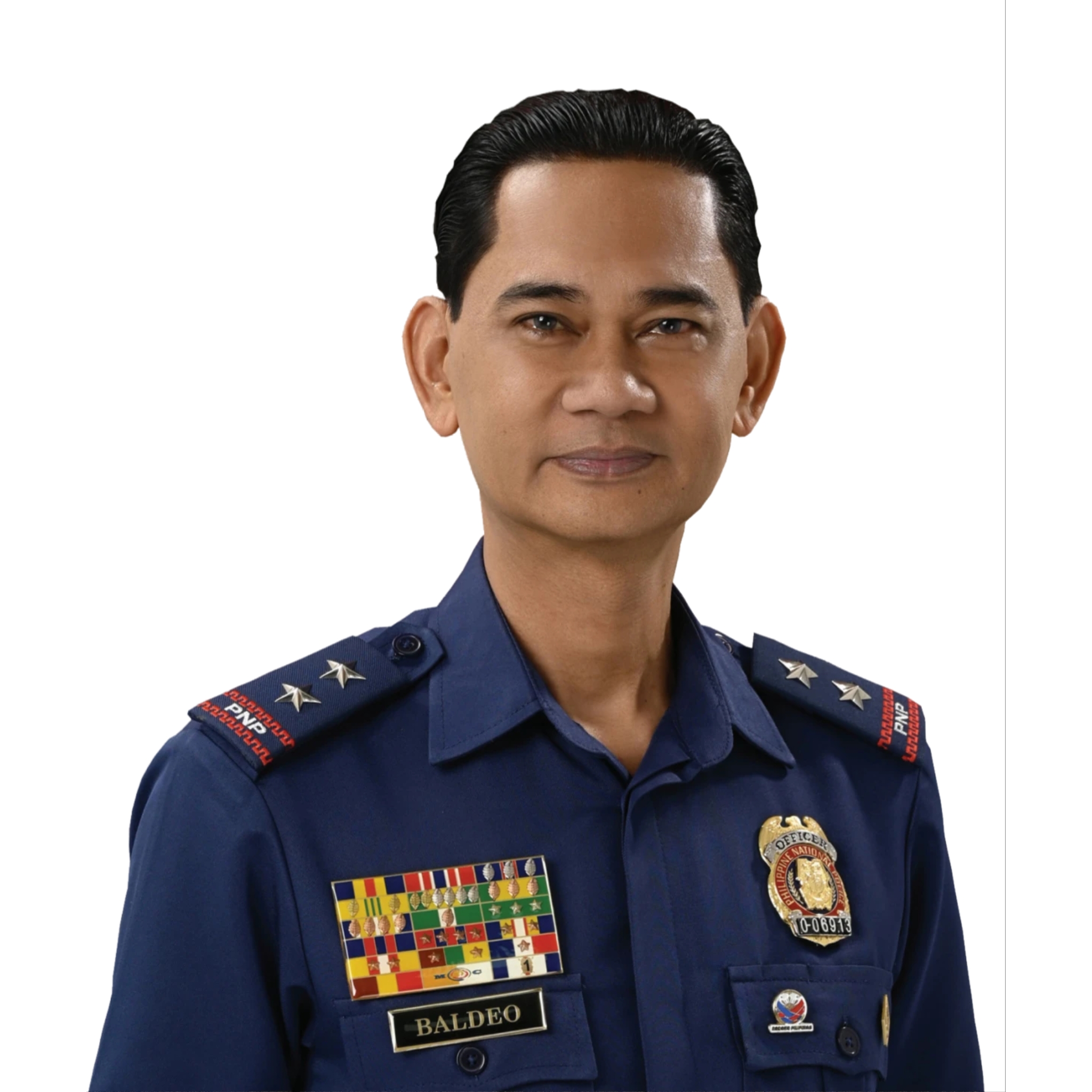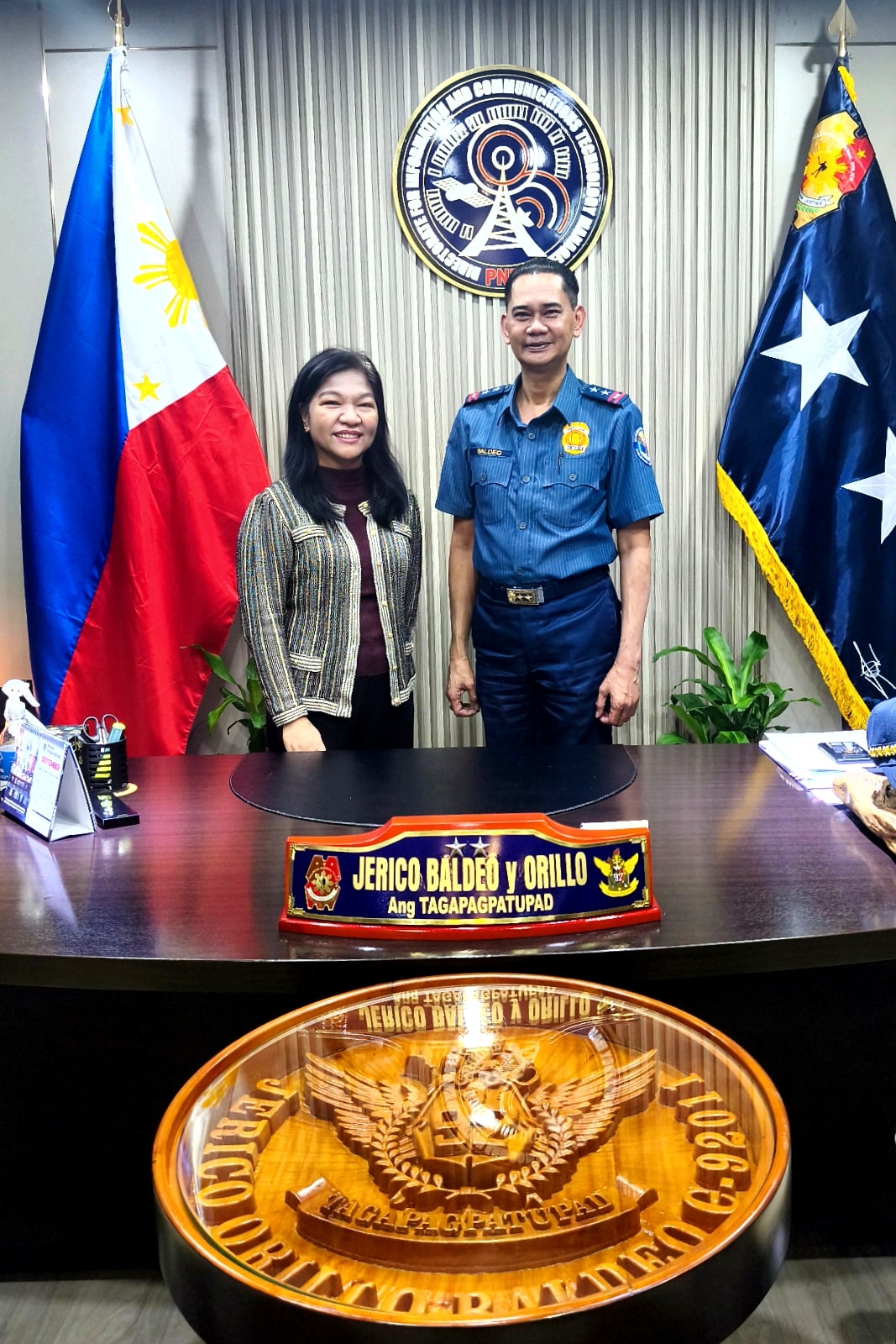
APDPO's First Featured Data Protection Officer

Law enforcement agencies worldwide face a defining challenge: how to embrace digital transformation without compromising the rights they are sworn to protect. One leader demonstrates that security and privacy are not mutually exclusive but intertwined imperatives.
As Cybersecurity Awareness Month draws to a close, the Asia-Pacific Data Privacy Organization (APDPO) spotlights a law enforcement leader who shows what it means to protect both people and their data. In a discussion with Magie Antonio, APDPO Country Head for the Philippines, Police Major General Jerico Baldeo shared his insights on leadership, privacy, and public trust.

General Baldeo serves as Director of the Philippine National Police (PNP) Directorate for Information and Communications Technology Management (DICTM), a position that carries the designation of Data Protection Officer (DPO) for the PNP. This structural decision ensures that privacy accountability resides at the senior leadership level, as required by the Data Privacy Act for government agencies of this scale.
His career exemplifies leadership grounded in both operational experience and technological innovation. Beginning as an internal security operator, he rose through investigative and command roles spanning more than two decades. His assignments included service with the PNP Anti-Kidnapping Group and later as Chief of Staff of the PNP Information Technology Management Service.
He also served as Director of the PNP Human Rights Affairs Office, a role that deepened his understanding of rights-based policing and further shaped his approach to privacy and accountability in law enforcement. "My tenure there gave me a wide perspective on human-rights-based policing and significant insight into developing the Fourth Philippine Human Rights Plan," he recalls. That perspective on human dignity continues to inform his approach to data protection.
This operational and strategic experience is complemented by a strong academic foundation. A top-three graduate of the Philippine National Police Academy and recipient of the Kampilan for Law Subject Award, General Baldeo also holds a Bachelor of Science in Criminology, conferred cum laude by the Philippine College of Criminology. He earned his Master in Public Management with a specialization in Development and Security from the Development Academy of the Philippines, receiving both the Silver Medal and the Leadership Award.
As Director of the DICTM and the PNP's DPO, General Baldeo has led a comprehensive transformation of how the organization approaches privacy governance. Leading both information and communications technology management and data protection for an institution of over 220,000 personnel, he describes his dual role with clarity:
"I recognize the unique intersection of two vital imperatives: public safety and individual privacy. My role is to ensure that data protection is not seen as a hindrance to police work, but as an essential component of trustworthy, professional law enforcement. Our duty to protect personal data is rooted in the same values that guide our service: respect for human rights, accountability, and transparency."
General Baldeo embraced the DPO role with conviction, leading privacy initiatives openly and decisively.
"I see data privacy not as a side issue, but as central to institutional credibility. I wanted to lead from the front—to champion privacy as a core value in our transformation agenda. My goal has always been to institutionalize privacy, not just comply with it."
Changing perspectives remains one of the most demanding aspects of the role.
"The most difficult task is changing the perspective from one of compliance to one of culture. In a command-driven organization, policies are often followed without question—but understanding the 'why' behind data privacy is crucial. Many officers initially viewed privacy requirements as additional bureaucracy. Over time, through awareness programs and leadership engagement, we've gradually built a sense of ownership around privacy. It's a work in progress, but we're seeing results."
Under his direction, the DICTM has developed a comprehensive privacy framework.
"Through the Directorate for Information and Communications Technology Management, we have undertaken the development of privacy-enhancing technologies, issued data-protection policies, and initiated the Privacy Management Program. We integrated Privacy Impact Assessments into our information-system development life cycle and embedded privacy by design into the Philippine National Police Data Processing System. We also conducted capacity-building activities and compliance reviews, ensuring that privacy becomes part of our digital-governance framework."
Ensuring accountability in such a large institution required structural innovation.
"We operationalized a multi-tiered accountability framework. Each Philippine National Police office and unit has a designated Compliance Officer for Privacy, Data Breach Response Team, and Data Privacy Team, and submits compliance reports to the Directorate. We have institutionalized Data Breach Response and Reporting Exercises and issued Memorandum Circulars, Data Privacy Directives, and Standard Operating Procedures to standardize protocols. Our centralized oversight is paired with localized responsibility, ensuring accountability from headquarters down to the precinct level."
The scale of this achievement becomes clear when considering the organization's size: implementing privacy governance across more than 220,000 personnel, spanning national headquarters to local precincts, represents one of the most comprehensive data-protection frameworks in regional law enforcement.
For General Baldeo, these initiatives all lead toward a single goal: building and maintaining public trust.
"Our commitment to public trust starts with transparency. We have published the Philippine National Police Privacy Notice, implemented secure data-collection channels, and embedded informed-consent mechanisms where applicable. We routinely conduct internal assessments and issue advisories reminding units of their responsibilities under the Data Privacy Act. We want every citizen who interacts with the Philippine National Police—from reporting crimes to applying for permits—to know that their personal data is treated with respect, safeguarded from misuse, and handled fairly."
That same sense of responsibility guides the organization as it adopts new technologies such as body-worn cameras, facial-recognition systems, and AI-based analytics.
"As we integrate body-worn cameras, facial-recognition systems, and AI-based analytics into policing, we are also advancing our privacy-impact and risk-assessment mechanisms. Every new technology we roll out goes through a review process guided by privacy-by-design principles. We're also collaborating with legal and technical experts to formulate ethical guidelines. Our goal is to leverage technology responsibly, without compromising individual rights."
General Baldeo also views privacy governance as part of a broader regional movement.
"Our journey aligns with the regional movement toward building public trust through transparent digital governance. Like many government agencies, the Philippine National Police is embracing digital platforms to enhance public services. However, we understand that with digitization comes the responsibility to protect data. Our proactive approach in institutionalizing privacy within a national law-enforcement agency is, I believe, an encouraging example of how national institutions can align digital transformation with human rights."
For other law-enforcement agencies in the Asia-Pacific region, he emphasizes the importance of leadership.
"Privacy leadership is most effective when it comes from the top. If data protection is only treated as a compliance matter, it will not take root. By embedding privacy into strategic planning, systems development, and operational protocols, agencies can build both internal discipline and public confidence."
General Baldeo's view of data protection is grounded in a sense of personal duty.
"I've always believed that public service is about stewardship—of people, of resources, and of information. My exposure to national information-and-communications-technology transformation efforts made it clear that data protection is the backbone of responsible digital governance. I bring to this role the values of integrity, discipline, and innovation. To me, protecting someone's data is an extension of protecting their dignity."
That same principle shapes how he defines his legacy.
"I hope to leave behind a system that works, even without me, a mature privacy-management infrastructure that is integrated into every layer of the Philippine National Police. I want future leaders to find a blueprint they can build on, not a checklist they need to start from scratch. More than systems, I want to leave behind a culture that sees privacy not as an obligation, but as a duty."
As the first Data Protection Officer from the Philippines to be featured by the Asia-Pacific Data Privacy Organization, General Baldeo closes with a message that captures both humility and shared purpose—one that may well define the next chapter of privacy governance across the region.
"My message is simple: data protection is not a burden, it's a form of leadership. In the age of information, how we protect people's data is how we show respect for their rights. For law-enforcement agencies, privacy does not weaken our mission—it strengthens it by earning the public's trust. Data protection is the cornerstone of moral innovation, not a hindrance to advancement."
"To the Asia-Pacific Data Privacy Organization community, I express my sincere gratitude for recognizing and acknowledging the efforts of the Philippine National Police. Let us continue to share experiences, raise the standards of privacy governance, and build bridges across our region. Privacy knows no borders, and neither should our commitment to uphold it."
By building a privacy infrastructure designed to work "even without me," General Baldeo is doing more than transforming an institution. He is testing whether a command-driven culture can embed rights-based values deeply enough to outlast any single leader. The early results now include 220,000 personnel operating under standardized breach protocols and privacy officers in every unit, forming a body of work that others can draw from. As he puts it, protecting someone's data is an extension of protecting their dignity. If the system holds, that principle may prove his most enduring contribution.